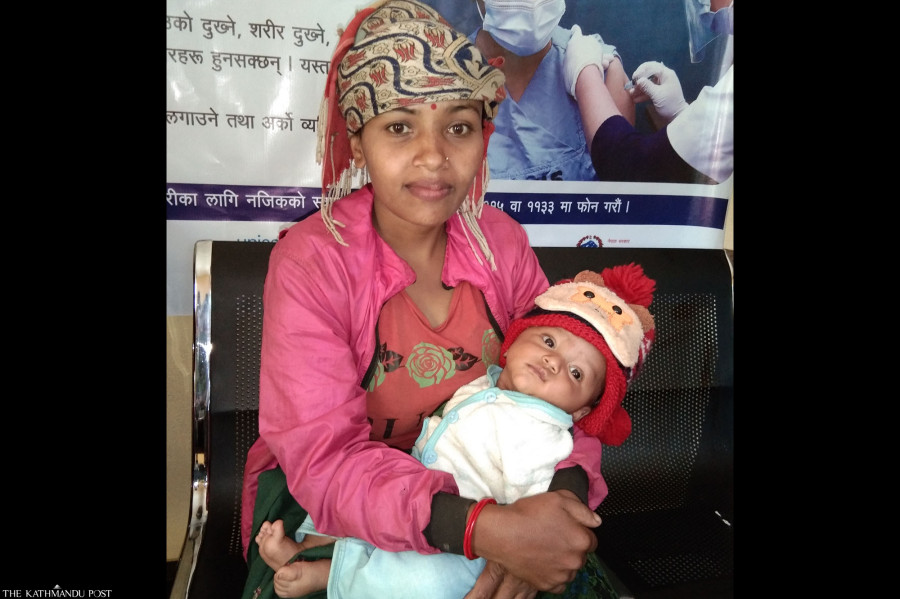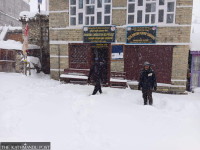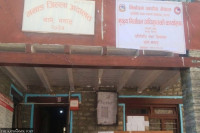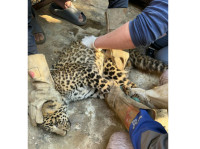Gandaki Province
Women in remote Baglung village are sent to animal sheds to give birth
Many women die for want of treatment and maternity care in Dhiri since they do not go to hospitals for delivery.
Prakash Baral
Three years ago, Narita Gotame was forced to go to an animal shed in a forest, around a two-hour walk from her house, to give birth to her daughter. She stayed at the animal shed for a month with her newborn before she made her way home.
While in the forest, Gotame struggled for survival, as she was deprived of nutritious food and maternity care.
“I had to give birth in the animal shed during a cold winter month. It was snowing in the area,” said Narita from Dhiri in Dhorpatan Municipality-3, Baglung.
Like Narita, pregnant women at Dhiri village are taken to animal sheds when they go into labour rather than health facilities. The villagers consider childbearing as ‘impure’, so the expecting mothers are sent to remote forests, away from human settlements, to give birth.
Many women die in need of treatment and maternity care in Dhiri since they do not go for institutional birth. “I somehow survived the hardship and saved my daughter. But my sister-in-law died of delivery complications at the animal shed 10 years ago,” said Gotame.
According to her, many other families in the village follow the tradition, putting the lives of mothers and their newborns at risk
Dhiri is a remote settlement at Ward 4 of Dhorpatan Municipality in Baglung district. There are around 100 households in Dhiri and most of them are Dalits. The settlement is around a three-hour walk from Khunga, where the ward office lies. A road track was opened in Dhiri last year but it is not motorable.
The local people of Dhiri and neighbouring Phalamkhani and Lukurban villages have around 40 animal sheds near the forest of Thulokhore. The farmers stay in the sheds and rear sheep, cattle and buffalo.
According to Hira Gaire, chief at Dhiri Community Health Unit, many women die as they give birth in animal sheds instead of visiting birthing centres for safe delivery.
“We didn't have proper knowledge about medical practices in the past. Pregnant women in Dhiri were not allowed to deliver babies in their houses and were asked to go to animal sheds for delivery,” said Gotame. “But the tradition has not changed. Women are still made to go to animal sheds to give birth.”
Lal Bahadur BK, a resident of Dhiri, said that many women have died in Dhiri and Phalamkhani due to lack of awareness.
“Women were not taken to health institutions for child delivery in the past. Sadly, the situation is still the same,” BK said.
Lal Bahadur’s wife Apsara also delivered her four babies in a shed.
“We were hesitant to go to a hospital to give birth,” she said.
According to Tilak Gharti, the ward chairman of Dhiri, the maternal mortality rate is high in the village, as some people still live in caves and are unaware of the services provided by health institutions.
A community health unit and a birthing centre were established in Dhiri around four months ago by the District Health Office in coordination with the ward office but the number of service seekers is minimal.
“A campaign has been launched to provide health consultation to pregnant women in the villages. Since the establishment of the birthing centre in Dhiri, we are trying to get as many women to give birth at the centre as possible,” said Gaire.




 13.12°C Kathmandu
13.12°C Kathmandu.jpg)











